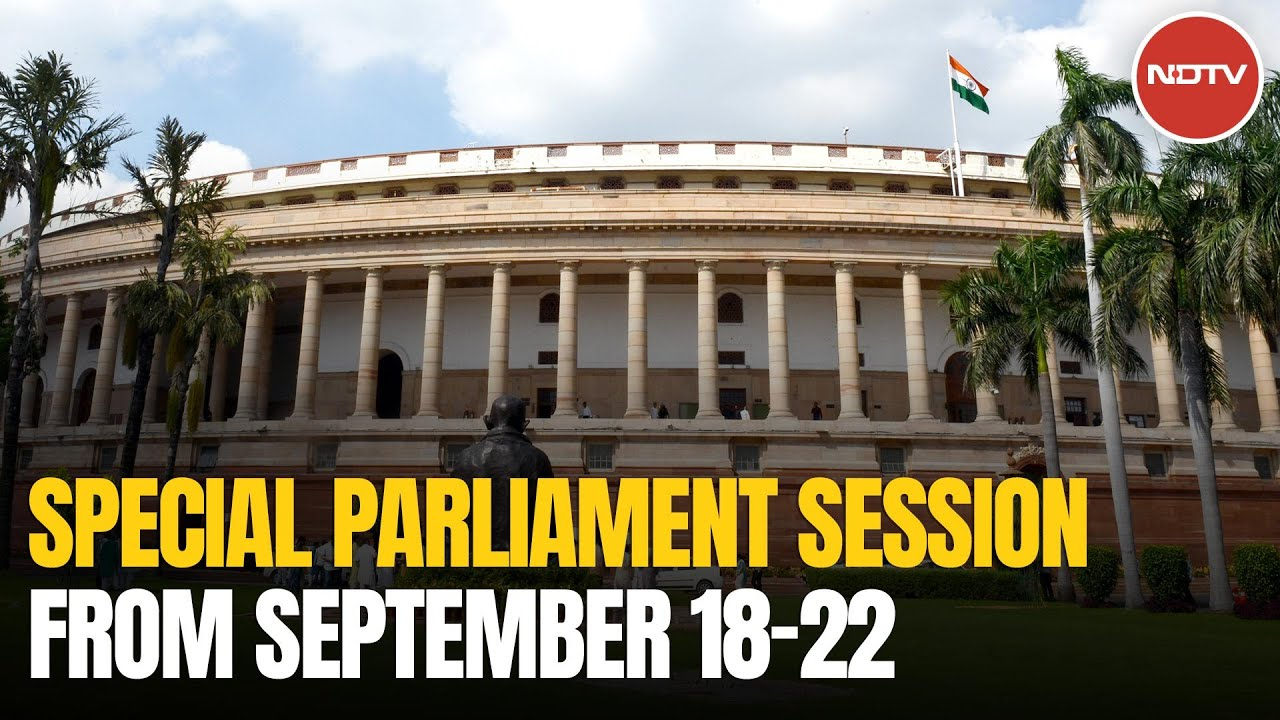Description

Copyright infringement not intended
Picture Courtesy: NDTV
Context: The government announced to convene a five-day special session of Parliament from September 18 to September 22. The government has not yet released any details about the agenda for the special session
Key Highlights
- Article 85 of the Indian Constitution mandates that Parliament must meet at least twice a year. The Budget Session, typically held from February to May, primarily focuses on the government's financial proposals and the budget. The Monsoon Session, held in July and August, deals with various legislative matters.
- The Constitution also sets a limit on the maximum gap between two sessions of Parliament, which cannot exceed six months. This ensures that there is regular parliamentary oversight and functioning.
- The President of India has the authority to summon a special session of Parliament at any time, beyond the regular sessions. This is usually done to address pressing and urgent matters that cannot wait for the next scheduled session.
- The President may call a special session for various reasons, including:
- Discussing and responding to natural disasters or security threats.
- Introducing urgent legislation, especially related to raising funds for relief efforts or addressing critical issues.
- Resolving political crises, such as deadlocks between the government and the opposition.
- Fulfilling constitutional requirements, such as the need to approve a constitutional amendment.
- The agenda for a special session is determined by the Cabinet, which is led by the Prime Minister. While there is flexibility in deciding the agenda, special sessions typically focus on urgent matters, such as natural disasters, security threats, political crises, or fulfilling constitutional requirements.
- A special session can last for a maximum of 14 days, as specified in the Constitution. However, if necessary, the President has the authority to extend the session for an additional 14 days. This allows for adequate time to address the specific issues at hand.
- Rules and Procedures: During a special session, the same parliamentary rules and procedures that apply to regular sessions are followed. This includes the requirement for a quorum (the minimum number of members required to conduct business) and the same voting procedures.
- The President can call a special session to address urgent matters, but the regular legislative process must still be followed. Legislation introduced during a special session, including money bills, must go through the normal parliamentary procedures and be passed by a majority of the members of Parliament.

Summary
- The special session of Parliament in India is a flexible and powerful tool that allows the government to convene Parliament outside of the regular sessions to address pressing issues. While it provides a mechanism to respond to emergencies and urgent matters, it does not bypass the established legislative processes, ensuring parliamentary oversight and checks and balances. These special sessions are a vital component of the Indian parliamentary system's ability to respond promptly to critical and time-sensitive situations while upholding the principles of democratic governance.
|
PRACTICE QUESTION
Q. What is the significance of parliament in a democracy, and how does it enrich democratic values and ensure democratic principles? What are the limitations of parliamentary systems in upholding democracy, and what potential ways forward can be explored to strengthen democratic governance through the parliament?
|
https://indianexpress.com/article/political-pulse/parliament-special-session-caught-by-surprise-opp-in-mumbai-steps-on-the-gas-on-plan-2024-8918482/
















